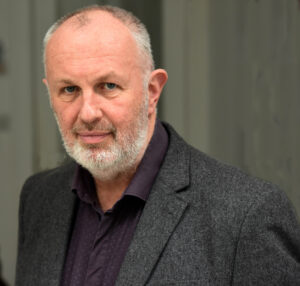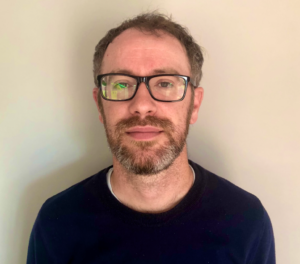Watch – Whistleblowing and the Media
Whistleblowing is a phenomenon that is not going away. New whistleblower protection laws are being implemented in the EU and other countries. Many organizations are changing their practices to adapt, and to encourage whistleblower disclosures. While this is a step forward, experience tells us that there will still likely be external disclosures, to regulators, to political figures, and to the media. Whistleblower partners including advocacy groups, experienced lawyers, trade unions and activists can play a critical role in ensuring disclosures are effective, and in protecting the whistleblower.
On 23 February, the Whitaker Institute at NUI Galway was delighted to host “Whistleblowing and the Media”, one of a three-part webinar series “External partners: When disclosures are made outside the organization” run in conjunction with Cork University Business School, Maynooth University and the whistleblowingimpact.org team. We welcomed four speakers from the field of journalism who spoke about their experiences of working with whistleblowing disclosures, and the best practices, challenges and lessons learned. A recording of the event is available to watch back below.
The event was chaired by Professor Kate Kenny.
Click here to register for the second webinar in the series, Whistleblowing and Advocacy Groups, hosted by Cork University Business School on 2 March.
About the Panellists:

Mick Clifford is the Special Correspondent for the Irish Examiner where he also presents a weekly podcast. He has been working in journalism since 1994. His main experience is in print, but he has also worked in broadcasting presenting various current affairs programmes on radio and TV. In 2016 he was named the newspaper industry’s Journalist of the Year. He has published six books, four non-fiction and two crime novels, In 2017, his book form account of the Maurice McCabe story A Force For Justice was published.
Through his work he has, over the years, engaged with whistleblowers right across society from the gardai, prison service, social services, charity sector, private industry and the fishing regulation service. In some of these instances he was nominated as the recipient of a protected disclosure under the provisions of the Protected Disclosures Act.

Ian Fraser has worked as a journalist for nearly 30 years, writing for titles including The Economist, Financial Times, Sunday Times, Guardian, Reuters, Dow Jones, Daily Mail, Herald and Sunday Herald. From 1999 to 2006 he worked for the newly launched, Glasgow-based Sunday Herald as financial editor. After 2008, he focused on covering the unfolding banking crisis as a freelance, working on several BBC documentaries including the Bafta-nominated RBS: Inside The Bank That Ran Out of Money. His book Shredded: Inside RBS The Bank That Broke Britain was named as a book of the year by Bloomberg, Huffington Post and The Week.
 Aoife Hegarty is an investigative reporter with Ireland’s public service broadcaster, RTÉ. Having worked for several years in the RTÉ newsroom in both radio and television, Aoife moved to the Current Affairs Department in 2012, first as a reporter on the station’s flagship Current Affairs programme Prime Time, before joining RTÉ Investigates where she has worked since 2014. Aoife has reported on numerous high-profile investigative programmes, exposing wrongs in the areas of health and social justice including medical negligence in some of Ireland’s maternity services, failings in the foster care system, among them the ‘Grace’ case, an undercover exposé of standards of care in childcare, serious shortcomings in paediatric audiology services and multi-million euro pharmacy dispensing fee irregularities. In 2014 she reported on Fatal Failures, a documentary uncovering a series of baby deaths at the Midland Regional Hospital Portlaoise for which RTÉ Investigates won a number of awards including a Silver World Medal at the New York Festivals International TV & Film Awards. Last year Aoife reported on several major investigations including the story of Ireland’s illegal adoptions, the incineration abroad of multiple baby organs by CUMH without the knowledge or consent of parents and the suspected sexual abuse of unconscious patients by a former doctor at Naas General Hospital. Aoife’s work has contributed to the establishment of several Government commissioned investigations, national policy change and substantial financial repayments. Hailing from her beloved Donegal, Aoife studied at NUI Galway before completing a Masters Degree in Journalism from Dublin City University.
Aoife Hegarty is an investigative reporter with Ireland’s public service broadcaster, RTÉ. Having worked for several years in the RTÉ newsroom in both radio and television, Aoife moved to the Current Affairs Department in 2012, first as a reporter on the station’s flagship Current Affairs programme Prime Time, before joining RTÉ Investigates where she has worked since 2014. Aoife has reported on numerous high-profile investigative programmes, exposing wrongs in the areas of health and social justice including medical negligence in some of Ireland’s maternity services, failings in the foster care system, among them the ‘Grace’ case, an undercover exposé of standards of care in childcare, serious shortcomings in paediatric audiology services and multi-million euro pharmacy dispensing fee irregularities. In 2014 she reported on Fatal Failures, a documentary uncovering a series of baby deaths at the Midland Regional Hospital Portlaoise for which RTÉ Investigates won a number of awards including a Silver World Medal at the New York Festivals International TV & Film Awards. Last year Aoife reported on several major investigations including the story of Ireland’s illegal adoptions, the incineration abroad of multiple baby organs by CUMH without the knowledge or consent of parents and the suspected sexual abuse of unconscious patients by a former doctor at Naas General Hospital. Aoife’s work has contributed to the establishment of several Government commissioned investigations, national policy change and substantial financial repayments. Hailing from her beloved Donegal, Aoife studied at NUI Galway before completing a Masters Degree in Journalism from Dublin City University.

Conall Ó Fátharta is an award-winning former journalist who worked as a Senior News Reporter with the Irish Examiner newspaper for more than a decade. He currently lectures in Journalism at National University of Ireland, Galway. His work is primarily investigative in nature and focuses on Ireland’s treatment of unmarried women and related practices–including forced and illegal adoption, infant trafficking, falsification of identities and records, medical and vaccine trials and infant mortality . He has also written extensively about Ireland’s Magdalen Laundries and failings in the subsequent government redress scheme. He recently had a chapter published in a book the book Legacies of the
Magdalen Laundries: commemoration, gender, and the postcolonial carceral state published by Manchester University Press. He is currently undertaking a PhD in Media Studies as a Hume Scholar in Maynooth University
 Kate Kenny is full Professor of Business and Society at NUI Galway. She has held research fellowships at the Edmond J. Safra Lab at Harvard University and Cambridge’s Judge Business School. Her work focuses on organizational power, culture and identity. Along with numerous articles in peer review journals on this topic, her recent books include: Whistleblowing: Toward a new theory (Harvard University Press, 2019) and The Whistleblowing Guide (Wiley Business, 2019, with Wim Vandekerckhove and Marianna Fotaki).
Kate Kenny is full Professor of Business and Society at NUI Galway. She has held research fellowships at the Edmond J. Safra Lab at Harvard University and Cambridge’s Judge Business School. Her work focuses on organizational power, culture and identity. Along with numerous articles in peer review journals on this topic, her recent books include: Whistleblowing: Toward a new theory (Harvard University Press, 2019) and The Whistleblowing Guide (Wiley Business, 2019, with Wim Vandekerckhove and Marianna Fotaki).

